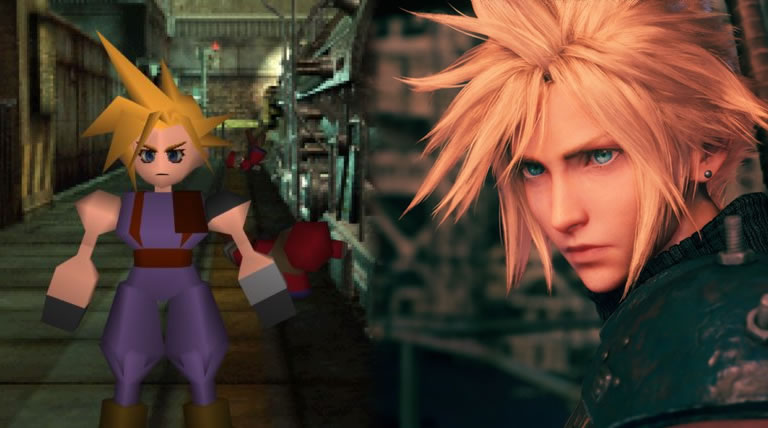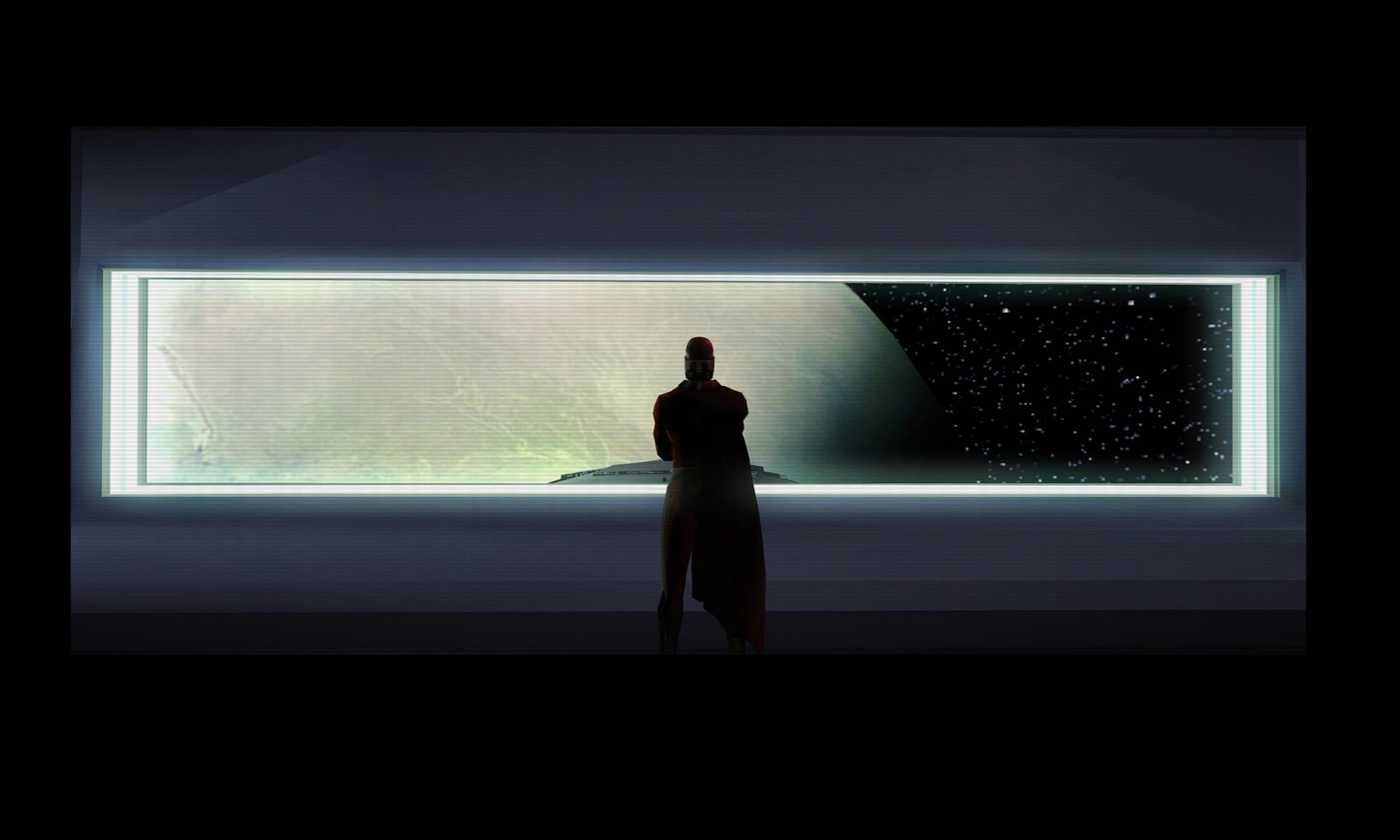It’s finally here! But then again it isn’t… The first and most important change that Square Enix made with this remake is splitting it up into multiple parts. As for how many parts there will be in the end, well, even its director Nomura Tetsuya isn’t quite sure of that yet. However, with all the attention that the team is getting, it’s safe to say that there’s an enormous amount of pressure on Nomura Tetsuya and his co-directors. Now that there’s been enough time since Part 1’s release, let’s reflect a bit. Here are my afterthoughts…
Warning!
I’m about to spoil the ending of Final Fantasy VII and its remake. My afterthought series are plain opinion pieces, which means they’re highly subjective. As it is with subjective things: Your mileage may vary. You can agree or disagree with what you’re about to read and that’s okay. It’s perfectly fine to like things that I don’t like or vice versa. If you enjoyed playing this game, then in no way shape or form do I want to ruin your experience.
Last but not least, as Super Bunnyhop used to so lovingly put it: I love you.
Historia
Before I get to the remake, let’s take a look at the legend itself. Final Fantasy VII, released in the late 90s for the PlayStation One, is widely considered as one of the greatest games of all time. Created by Square, later part of Square Enix, the Tokyo-based development studio already made its name before with titles like Chrono Trigger or Secret of Mana. However, even though both were equally well-received, they still shared the common curse that JRPGs suffered from at that time. Despite selling well inside Japan, JRPGs were niche games in the US and even rarer in the PAL region. The release of the PlayStation marked an opportunity of change for Square. They released most of their previous titles for Nintendo cartridge-based consoles. But since more and more games utilised 3D graphics and Square didn’t want to fall behind, they established a partnership with Sony. Confident in their results, Sony equipped them with a record-breaking production budget of roughly 45 million dollars. Square’s aim was to produce a game that, compared to its predecessors, was superior in virtually every single way. Presentation, content and gameplay needed to be polished to near-perfection. Additionally, Sony co-operated heavily with Square. They took care of the worldwide release and massively invested in its marketing. Lengthy TV ads, multiple-page magazine ads. Things that are common today, but back then were practically unprecedented both in the quantity and quality. Considering the high costs, Square and Sony did both take a gamble with VII, but they made sure to give it their best.
As we know today, it paid off. They quickly sold millions of copies all around the world. Final Fantasy VII emerged as a system seller, a killer app for Sony’s Playstation and marked a milestone of not only JRPGs but video games in general. It became the 2nd best selling PlayStation One game, surpassed only by Gran Turismo. Its immense success built the foundation of what would quickly become one of the best selling video games series of all time.
Aside from this remake, a few years ago Square Enix released a self-titled remaster. It is currently still available on PC, Playstation and other platforms.
Taxonomy & Expectations
Alright, so let’s talk about remasters and remakes. A remaster is practically the exact same game ported to current-gen hardware. There may be very minor changes like a higher display resolution but everything else is left unchanged. Gameplay, visuals and audio are supposed to feel, look and sound exactly the same. In contrast a remake takes the liberty of making even significant changes. The sole obligation is to keep the spirit of the original game alive. Both have its advantages and disadvantages but your takeaway should be this: Unlike a remaster, a remake allows its developers not only more creative freedom. It also enables them to do maintenance and transitions on the most basic of levels. It gives them the opportunity to adapt the game to today’s standards and thus a remake may appeal even to those who missed the original game. Think of it this way, a remaster looks exactly like the game that you played all those years ago. A remake is the same game viewed through your nostalgic rose-tinted glasses.

Nostalgia gets people emotional. The most important aspect is, next to the product itself, managing customer expectations. Even the best games can impressively crash and burn by either misleading or straight-up false marketing. Currently, the two best examples of how-to and how-not-to do that are Resident Evil 2 and Warcraft 3. Currently, Capcom is incredibly successful in remaking the Resident Evil series. Their RE2 remake sold more than 5 million times, which is even more than the original game. The reason for that is simple. RE2’s remake managed to perfectly balance nostalgia and today’s standards. Capcom gave RE fans exactly what they wanted, an up-to-date RE2. But they also created a game that’s fun and enjoyable for new, younger audiences. As for Warcraft 3: Reforged, it failed on multiple levels. Not only did it mislead in marketing since the final product varied heavily from its promotional material. It also didn’t include important features that even the original had. It struggled in vital technical aspects. Ultimately, the straw that broke the camel’s back was when every owner of the original received a forced upgrade to Reforged. Blizzard removed Warcraft 3 from the battle.net store more than a year ago.
Not So Final
My biggest gripe with this game is right there in the title. It’s a misnomer because this is anything but a remake. It’s a meta-deconstruction of the original, which in of itself is pretty clever if you think about it. It’s also pretty bold because there is always a good chance that your changes might end up alienating even your die-hard fans, think Metal Gear Solid 2. The writers are trying to do two things at the same time. As they retell the original story they also attempt to continue it. In the end, what they brand as a remake is more of a remake-sequel-blend with mixed success. As a result, my personal opinion on this is constantly shifting between admiration and head-shaking.
Before I go any further let me do a basic rundown of what happens in the remake. The game follows the story of the original game, but with the inclusion of three very important changes. The first change is that at least two major characters, Aerith and Sephiroth, are aware that they have been teleported back through time. The second change is that this remake includes mythical beings, called the whispers of fate. It is their job to keep the original timeline intact and any significant change to it from happening. Simply put, they exist to make sure that everything happens just like it did in VII. They manage to do so up until the end of the game when they are defeated by the player, meaning fate can be defied and the ending of the series isn’t set in stone. This leads to the third change, as we see that another major character, Zack Fair, alive and well after an encounter he originally didn’t survive. Changing fate is the major theme of this remake and this is further cemented by the game’s ending lines “The unknown journey will continue”.

If you haven’t played Final Fantasy VII before, you won’t understand any of this. I’ve seen many people trying to falsely paint the disappointment about this remake’s ending as the complaints of “hardcore purists”. This argument completely disregards the fact that there are many people, like me, who didn’t play the original. They are going to be utterly confused at best and alienated at worst by these changes. It would have helped if these changes were subtle, but they’re anything but that. Inserting a meta-commentary on the original game is clever. Having the player literally fight that commentary in the form of “plot ghosts” as a boss fight is incredibly lazy and ham-fisted. It turns subtext into text. It’s a clap on the shoulder of the player going: “You just beat fate! Good job, buddy!” At that point, it’s not “just adding another layer to the story”, as many like to put it, but it becomes the most important part of the story. The game’s ending solidifies that. Combine this with the fact that the game is marketed and sold as a retelling of the original and you might understand why so many people are irritated by this.
What also bugs me is that this continues a trend that I already experienced with Final Fantasy XV. It’s the general idea that the base game either isn’t able or just unwilling to give you a full and cohesive understanding of the world and its story. With XV, there’s the anime mini-series Brotherhood and the almost-two-hour film Kingsglaive. If you haven’t seen those, you will lack important background info. Each party member, at some point during the game, will arbitrarily leave your party to do their own thing. If you want to know what happened to them during that time then you need to pay up for the DLC. Even leaving all that aside, the plot still has its weaknesses, most notably the pacing. The bottom line is: It feels way harder to make that connection with those characters unless you are willing to invest the extra time and money. That’s not to say that I don’t appreciate extra content or plain fan-service. As I said before, Mass Effect 3’s Citadel DLC is pure, cheesy fan-service and I absolutely loved the hell out of it. The problems begin when missing out on this content is detrimental to your experience of the main game.
So where do we go from here? That’s hard to tell as not only do we still lack the rest of the remake, but even things at Square Enix are sometimes subject to change. The quality of the statements we get from the team heavily depends on what aspect of the game they’re talking about. For example, they announced relatively early that the combat system would be more action-oriented and they did stay true to that. However, the plot is an entirely different matter. The team only has a basic concept of where they want to take the story and how it ends. The number of episodes, which parts of the story they deal with and their release dates? That’s all still being worked on right now. With that in mind, I do think that VII’s fans should have serious reservations, especially about the quality of writing. Fans of Kingdom Hearts might be able to tell you a thing or two about that.
Coda
Final words, then. I gave some facts about the past, expressed my disappointment about the present and advised mild scepticism for the future. I thought that’s it, but then I ended up reading Joshua Rivera’s article ‘With Final Fantasy VII Remake, Video Games Have Their Last Jedi Moment‘ over at Vulture. If you made it this far, then you should give that a read as well. He delivers some very good arguments on why the remake turned out as it did. The easiest way for Square Enix to do the remake would have been to stick to the source material and just make a carbon copy of the original. Although it’s very likely this idea was immediately dismissed by the producer and writers. It’s the constant pressure, both from fans and company executives, to continue stories that should have ended a long time ago. VII’s problems don’t stem from the fact that the team tried to do something new. It’s that they couldn’t.

